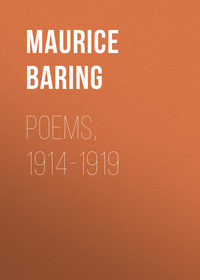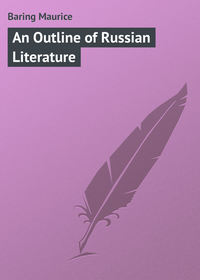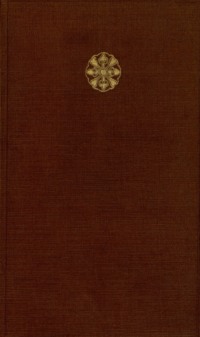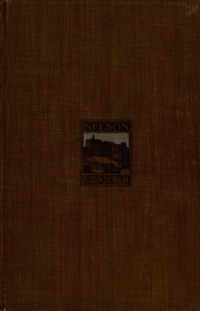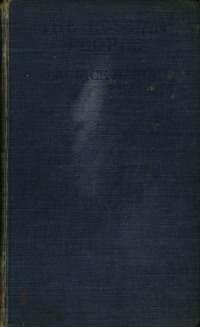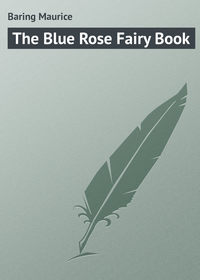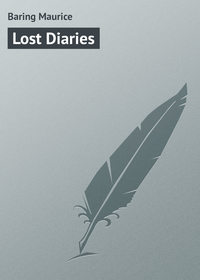 полная версия
полная версияPassing By
A. sat between Mrs Housman and Lady Simcox. Housman had the Princesse de Carignan on his right and Lady Maria on his left. I sat between Lady Maria and Miss Housman. Lady Maria told me she dined out whenever she could, and asked me to luncheon on Sunday. "Don't come," she said, "if you mind meeting lions; I like pleasant people. Only I warn you I have an old-fashioned prejudice for good manners and I always ask their wives."
Mr Baines talked beautiful French to the Princesse. Lady Maria told me she was neither French nor a princess, but the illegitimate daughter of a Levantine. "But very respectable all the same, I'm afraid," she added.
After dinner a few people came. Among others, Housman's partner and Esther Lake, the contralto. She sang (she brought her own accompanist) some Handel and Che faro and, by request of Mr Housman, Gounod's There is a Green Hill.
I drove home with A. He told me he had enjoyed himself immensely and he thought Esther Lake was the finest singer in the world.
He said Miss Housman was a very clever woman and Housman appeared to be quite a good sort.
He said he liked this kind of dinner-party.
Thursday, March 18th.
The first day there has been a feeling of spring in the air. I went to St James's Park on the way to the office.
Dined at the Club.
Friday, March 19th.
A. asked me to spend Sunday with him in the country. I told him I was sorry I was engaged to go out to luncheon on Sunday. He said I must come the week after.
Saturday, March 20th.
C. said it was a great pity A. did not go out more. He used to go out a great deal, he said. "I suppose," he added, "it's because he doesn't wast to meet Mrs Shamier." I said I thought C. had told me he was fond of her. "Yes," said C, "he was very fond of her, but that is all over now."
Sunday Evening, March21st.
I went to St Paul's Cathedral in the morning. Then to luncheon with Lady Maria in her house in Seymour Place.
A curious luncheon. There were two actors and their wives, Father Seton, and Mr Le Roy, who writes detective stories, and his wife, and Sir James Croker.
I sat next to Mrs Le Roy, who is, she told me, a Greek. She told me her husband had written one hundred and ten books, but that she had read none of them. She said it worried him if she read them. She said it was a great sacrifice as she doted on detective stories and was told his were very good. The actors, who were both actor managers, told us about their forthcoming productions. Mr Vane said there was going to be a real panther in his next production (a Shakespearean revival). Mr Jones Acre is producing a play which is translated from the Swedish, and which deals with the question of a man who has inoculated himself and his whole family with a fatal disease, in the interests of science.
Father Seton took a great interest in the stage, and said he considered the Church and the stage should be close allies. The clergy took far too little interest in these things. It was a pity, he said, to let the Romans have the monopoly of that kind of thing. This surprised Mrs Le Roy, who said she thought he was a Roman Catholic. He laughed and said Rome would have to capitulate on many points before any idea of corporate reunion could be entertained.
Sir James Croker told stories of early days in the Foreign Office and Lord Palmerston.
We sat on talking until half-past three. I then went home and read Jane Eyre.
Letter from Guy Cunninghame to Mrs Caryl
HALKIN STREET, March 25th.DEAREST ELSIE,
I start on Thursday and shall arrive Thursday evening. I have got rooms at the Ritz. Let us have dinner together Thursday night, and not go to a play. I shall stay in Paris a week and then go for four days to Mentone. Then I shall come back to Paris for three days, and then home. I suppose we shall have to dine at the Embassy one night. George is going to the country for Easter with his sister. I want a really nice screen (a small one). You must help me to find one, not too dear. I also want something for the dining-room, which at present is coo bare.
I won't write any more now.
Yours,G.From the Diary of Godfrey Mellor
Sunday, March 29th. Hôtel St Romain, Rue St Roch, Paris
Went to a concert at the Cirque d'Été this afternoon, not a very interesting programme. A great deal of Wagner, and L'Après-midi d'un Faune.
Dined by myself at a Duval. Start for Florence to-morrow morning.
Tuesday, March 30th. Villa Fersen, Florence
Arrived this morning before luncheon after an exhausting journey second-class. In the carriage there was a soldier belonging to the Garde Républicaine. He said he was on duty at the Opera and had he known I was passing through Paris he could have given me a billet de faveur.
The Housmans' villa is at the top of a hill on the Bellosguardo side. It is rather a large house, covered with wistaria, with high windows with iron bars. It has a large empty salon with a piano. A fine room for sound. The garden is beautiful.
Wednesday, March 31st.
I walked down into Florence very early in the morning. I reached the town before anything was open and met a party of men in shorts and flannels running back to a hotel. They were Eton masters taking exercise. I didn't go to any picture galleries, but I walked about the streets and went into the Duomo, an ugly building inside. I got back for luncheon.
Housman said that they must leave cards in the afternoon and take a drive in the Cascine. They went out in a carriage and pair. I went for a walk to the Boboli Gardens. At dinner Housman said they had met several friends, and he is giving a dinner-party on Sunday.
Thursday, April 1st.
The Housmans took me to luncheon with a banker called Baron Strong. What the explanation of this title is I do not know. They live in the modern part of the town. He was a genial host, portly, with long white whiskers. His wife, the Baroness, an Italian, a distinguished lady. There were present a Marchese whose real name I was told was Goldschmidt, and his wife, a retired and talkative English diplomatist, a Russian lady, an Italian, who talked English, French and Russian with ease, called Scalchi, Professor Johnston-Wright, who is spending his holiday here, and a Frenchman. When the latter heard Scalchi talk every language successively he said to him: "Vous êtes une petite tour de Babel."
In the afternoon we left cards at several houses and villas and then went for a drive in the Cascine. Some people called at tea-time, but I escaped. After dinner Mrs Housman sang some Schumann, Frühlingsnacht, and the Dichterliebe. These songs, she said, suit Florence.
Friday, April 2nd.
I had a talk with the Italian gardener as far as my Italian permitted me to. I pointed out a plant, a mauve-coloured plant, I don't know its name, that seemed to grow in great profusion. He said: "Fiorisce come il pensiere dell' uomo." More calls in the afternoon, and another drive in the Cascine.
Housman has bought a large modern statue representing The Triumph of Truth, a female figure carrying a torch, with a serpent at her feet. She is triumphing, I suppose, over the snake.
Saturday, April 3rd.
We went to see the Easter Saturday ceremony at the Duomo, and then to luncheon at the Villa Michael Angelo. It belongs to a rich American called Fisk. There were present besides Mr and Mrs Fisk an English authoress, a picture connoisseur, Scalchi, an American archæologist, an Italian man of letters, and a Miss Sinclair, also an archæologist. Housman said afterwards this was the cream of intellectual Florence.
I sat between two archæologists. I found their conversation difficult to follow.
After luncheon we called on the British Consul's wife, whose day it was. Then after a drive in the Cascine we went home.
Easter Sunday, April 4th.
Mrs Housman went to Mass early. Went for a walk with Housman. On the Ponte Vecchio we met Ayton and his sister, Mrs Campion. Mrs Campion, he said, had insisted on him taking her to Florence.
Housman asked them to dinner to-night; they accepted. A great many people came to tea.
The dinner-party to-night was quite a large one. Baron and Baroness Strong, Lord Ayton, Mrs Campion, Mr and Mrs Fisk, Scalchi and the Marchese and his wife, whom we met lately. I sat between Mrs Campion and Baron Strong. After dinner Mrs Fisk played Chopin with astonishing facility, but without any expression.
A. intends to stay here another fortnight.
Housman said he received a telegram which will necessitate his meeting his partner at Genoa. His partner is on the way to the Riviera. He may have to go to Paris too, but he hopes not, and intends to be back in a few days if possible.
Monday, April 5th.
Housman left to-day for Genoa. I went with Mrs Housman to San Marco and the Accademia in the morning. In the afternoon to the Certosa with Mrs Housman, A. and Mrs Campion.
Tuesday, April 6th.
Mrs Campion and A. came to luncheon. Mrs Campion, who is an expert gardener, told me the names of all the flowers in the garden. They have not remained in my mind.
Wednesday, April 7th.
We all spent a morning sight-seeing and had luncheon at a restaurant. In the afternoon we drove to Fiesole.
Thursday, April 8th.
Housman is not coming back. He is obliged to go to Paris and he will go straight to London from there.
We drove to Fiesole in the morning. Had luncheon with some Italian friends of Mrs Campion, Count and Countess Alberti. Nobody there except the host and hostess and their three children. A fine villa and no garden. Countess Alberti said it was no use having a garden if one lived here in summer, as everything dried up. She is a charming woman, natural and unpretentious, and talks English like an Englishwoman.
She asked A if he had met many people, and A. said he was a tourist and had no time for visits. Countess Alberti said he was quite right and that she knew nothing in the world more —seccante was the word she used, than Florentine society.
She asked us all to come again next week. I am leaving on Sunday, and A. and Mrs Campion are going to Paris on Monday. Mrs Housman remains here another week.
Friday, April 9th.
Mrs Housman had a headache and did not come down. I went to the town and did some shopping and went over the Bargello. Mrs Housman came down to dinner and sang afterwards, Schubert, Schumann and Brahms. I had never heard her sing O Versenk o versenk dein Leid mein Kind, in die See before.
Saturday, April 10th.
We went to a great many churches in the morning and saw a number of frescoes. Mrs Housman received a great many invitations, but refused them all. A. and Mrs Campion and the Albertis came to dinner. Countess Alberti persuaded Mrs Housman to sing. She sang some English songs: Passing By, Lord Randall, etc., Gounod's Chanson de Mai, and some Lully. Countess Alberti said it was a comfort to hear singing of which you could hear every word. A. liked Passing By best, and he made her sing it twice. He asked me who the words were by. The tune is Edward Purcell's. The words, although generally attributed to Herrick by musical publishers, are by an anonymous poet, and occur in Thomas Ford's Music of Sundry Kinds, 1607. They are as follows: —
There is a ladye sweet and kind,Was never face so pleas'd my mind,I did but see her passing by,And yet I love her till I die.Her gestures, motions, and her smile,Her wit, her voice my heart beguile,Beguile my heart, I know not why;And yet I love her till I die.There is also a third stanza.
Letters from Guy Cunninghame to Mrs Caryl
VILLA BEAU SITE,MENTONE, Thursday, April 8th.DEAREST ELSIE,
It is divine here and this villa is a dream. We went to Monte Carlo yesterday and I won 300 francs and then lost it again. I saw hundreds of people, monde and demi-monde. Among the latter Celia Russell, having luncheon with rather a gross-looking shiny financier. I asked who he was and found out that he was Housman of Housman & Smith. Apparently C.R. has been living with him for some time, ever since, in fact, L. went to India. But the interesting thing to me is that Housman is the husband of that beautiful Mrs Housman I told you about. M. knows them and knows all about them. Mrs Housman was a Canadian, very poor, with no one to look after her but an old aunt. He married her about ten years ago. Since then he has become very rich. Carrington-Smith is now his partner. Housman supplies the brains. They live somewhere in the suburbs and she never goes anywhere.
I am not coming back till next Monday. I shall be able to stop two or three days in Paris, very likely longer.
Yours,G.HALKIN STREET, Sunday, May 9th.DEAREST ELSIE,
I have had a busy week since I have been back. Monday I dined with George at his flat. A man's dinner to meet some French politicians who are over here for a few days. I told you I was determined to make Mrs Housman's acquaintance, and I have. I had luncheon on Tuesday with Jimmy Randall, a city friend of mine. You don't know him. He knows the Housmans intimately. I told him I wanted to know them and he asked me to meet them last night.
We dined at the Carlton, Randall, the Housmans and myself. I think she is even more beautiful than I thought before. I couldn't take my eyes off her. She was in black, with one row of very good pearls. I never saw such eyes. Housman is too awful; sleek, fat and common beyond words, but sharp as a needle. He has an extraordinary laugh, a high, nasal chuckle, and says, "Ha! ha! ha!" after every sentence. They have asked me to dinner next Tuesday. I will write to you about it in detail. Mrs H. is charming. There is nothing American or Colonial about her, but she is curiously un-English. I can't understand how she can have married him. I caught sight of her again this morning at the Oratory, where I always go if I am in London on Sundays, for the music. Randall told me she is very musical, but I didn't get any speech with her.
The flat looks quite transformed with all the Paris things. They are the greatest success.
Yours,G. Wednesday, May 12th.DEAREST ELSIE,
The dinner-party came off last night. They live in Campden Hill. I was early and the parlour-maid said Mrs Housman would be down directly, and I heard Housman shouting upstairs: "Clare, Clare, guests," but he did not appear himself. I was shown into a large white and heavily gilded drawing-room, with a candelabra, a Steinway grand, and light blue satin and ebony furniture, a good many palms, but no flowers. The drawing-room opened out on to an Oriental back drawing-room with low divans, small stools inlaid with mother-of-pearl, and a silver lamp (from a mosque) hanging from the ceiling, heavy curtains too, behind which I suspect stained-glass windows. Over the chimney-piece an Alma Tadema (a group on a marble seat against a violet sea). At the other end of the room Walter Bell's picture. It was the picture I saw before, but more about that later. On another wall over a sofa a most extraordinary allegorical picture: a precipice bridged by a large serpent, and walking on the serpent two small figures, a woman in white draperies and a knight dressed like Mephistopheles, all these painted in the crudest colours. The Housmans then appeared, and Housman did the honours of the pictures, faintly damned the Alma Tadema, and said the Snake Picture was by Mucius of Munich in what he called Moderne style. He had picked it up for nothing; some day it would be worth pots of money. Ha! ha! Then the guests arrived. Sir Herbert Simcox, K.C., Lady Simcox, dressed in amber velvet and cairngorms; Housman's sister Miss Sarah, black, and very large, in yellow satin, with enormous emerald ear-rings; Carrington-Smith, Housman's partner; Mrs Carrington-Smith, naked except for a kind of orange and red Reform Kleid, with a green complexion, heavily blacked eyebrows, and a Lalique necklace. Then, making a late entrance, as if on the stage, a Princesse de Carignan, a fine figure, in rich and tight black satin and a large black ruff, heavily powdered. Housman whispered to me that she was a legitimate Bourbon. I think he meant a Legitimist. We went down to dinner into a dark Gothic panelled dining-room, with a shiny portrait of Mr Housman set in the panelling over the chimney-piece.
I sat between Mrs Housman and Mrs Carrington-Smith. I talked to Mrs Housman most of the time. Mrs Carrington-Smith asked me if I liked Henry James's books. I said I liked the early ones. She said she preferred the later ones, but she could never feel quite the same about Henry James again since he had put her into a book. She was, she said, Kate in The Wings of the Dove. After dinner Housman moved up and sat next to me. He talked about art and bric-à-brac. I asked him if I could possibly have seen Bell's portrait of Mrs Housman in America. He said, "Certainly." He had bought it cheap and sold it dear, anticipating a slump in Bell, which was not slow in coming. He had then bought it back directly Bell died, anticipating a boom, which had also occurred. "It is now worth double what I gave for it. Ha! ha! ha!"
Randall said he liked a picture to tell a plain story and he could make nothing of the Snake Picture upstairs. Housman laughed loudly and said it was the oldest story in the world: the man, the woman, and the serpent. Ha! ha! We went upstairs, where there was a crowd. I was seized upon by the Princesse de Carignan, and she whispered to me confidential secrets about Europe. She preened herself and displayed the deportment of a queen in exile.
Then we had some music. Esther Lake bawled some Rubinstein, and Ronald Solway played an interminable sonata by Haydn with variations and all the repeats. Some of the guests went downstairs, but I was wedged in between the Princesse and a Mrs Baines, a fluffy, sinuous woman, dressed in a loose Byzantine robe. Her husband, who is an expert in French furniture, told me she was once mistaken for Sarah, and she has evidently been living up to the reputation for years. He was careful to add that it was in the days when Sarah was thin – Mrs Baines being a wisp.
After the music, which I thought would never stop, we went downstairs again for a stand-up supper and sweet champagne. I was introduced by Housman to Ronald Solway. Housman told him I was a musical connoisseur, so he bored me with technicalities for twenty minutes. I couldn't get away. He had no mercy on me. Housman has got a box at the Opera. He told me I must use it whenever I like. How can she have married that man?
Yours,G. Wednesday, May 19th.DEAREST ELSIE,
Thank you for your most amusing letter. I have been busy and not had a moment to write. We have had a good deal of work to do. Last Friday I had supper at Romano's after the play. Housman was there with Celia Russell. I spent Saturday to Monday with the Shamiers. Lavroff was there. Last night I went to the Opera to the Housmans' box. It was Bohème. During the entr'acte who should come into our box but George. He stayed there the whole time, talking to Mrs H., and came back during the next entr'acte.
The next day at the office when I was in his room I said something about the Housmans and began telling him about my dinner. He froze at once and said Mrs Housman was an extremely nice woman. I said something about Housman, and George said: "Oh, not at all a bad fellow." So I saw I was on dangerous ground. Housman has asked me to spend next Sunday at his country house, a small villa on the Thames near Staines. I am going.
They are dining with me on Thursday. I asked George, too, and he accepted joyfully.
Yours,G. Monday, May 24th.DEAREST ELSIE,
I am just back from the country. But first I must tell you about my dinner. I had asked the Housmans, George, Eileen Hope, and Madame de Saint Luce who is staying in London for three weeks. Just before dinner I got a telegram saying that Mrs Housman was laid up and couldn't possibly come. Housman arrived by himself. George was evidently frightfully annoyed and hardly spoke. Madame de Saint Luce was amazed and rather amused by Housman, and after dinner Eileen sang beautifully, so it went off fairly well except for George.
Saturday I went down to Staines. Housman had got an elegant villa on the river. Very ugly, with red tiles, photogravures, and green wooden chairs and a conservatory, full of calceolaria. But I must say his food is delicious. George was there, Lady Jarvis, and Miss Sarah.
After dinner on Saturday there was a slight fracas. George asked Mrs Housman to sing. She didn't much want to, but finally said she would. Miss Sarah, who is a brilliant pianist, said she would accompany her (she evidently hates being accompanied). She sang a song of Schubert's, Gute Nacht. Miss Sarah played it rather fast. Mrs Housman said it ought to be slower. Miss Sarah said it was meant to be fast, and that was her conception of the song in any case.
Mrs Housman said she couldn't sing it like that, and didn't, and then she said she couldn't sing at all. Afterwards she did sing some English ballads and accompanied herself.
She sings most beautifully, her voice is perfectly produced and you hear every word. There is nothing throaty or operatic about it but her voice goes straight through one. George was entranced. Sunday afternoon George and Mrs H. went out on the river and stayed out all the afternoon. I spent the afternoon with Lady Jarvis, who is most clever and amusing. She told me all about the Housmans. Mrs H. is not Canadian but Irish. She was brought up in a convent in French Canada. Directly she came out of it her marriage with H., who was then in a Canadian firm, was arranged by her aunt (her aunt was an imbecile and quite penniless). They lived several years in Canada, California and other parts of America, and came to England about three years ago. Housman was unfaithful from the first. Lady Jarvis knew about Celia Russell. I asked her if Mrs Housman knew. She said she – Lady Jarvis – didn't know, but it wouldn't make any difference if Mrs H. did or not. She said: "There is nothing about Albert Housman that Clare doesn't know." Then she said that unless I was blind I must of course have seen George was madly in love with her.
I said I agreed. She said she thought Mrs Housman was madly in love with him. I said I wasn't sure. Lady Jarvis said she was quite sure.
They came back very late from the river and Mrs Housman didn't come down to dinner. She said she had a headache. We had rather a gloomy dinner although Miss Sarah and Lady Jarvis never stopped talking for a moment, but George was silent.
You know he sees nobody now except the Housmans.
Yours,G.From the Diary of Godfrey Mellor
Monday, May 3rd. Gray's Inn.
A. returned to London a day sooner than he was expected. His Secretary, Tuke, had not returned. He had left his address with me. He spent his holiday in the Guest House, Fort Augustus Abbey, a Benedictine monastery. He returned this morning. A. asked me on Saturday where he was. When I told him, A. showed great surprise. He said: "He has been with me six years and I never knew he was an R.C. It's extraordinary when a thing once turns up, you then meet with it every day. I seem always to be coming across Catholics now."
Tuesday, May 4th.
Alfred Riley telegraphed to me to know whether I could put him up to-night. I have answered in the affirmative, but he will be, I fear, most uncomfortable.
Wednesday, May 5th.
Riley arrived last night. He has been in Paris for the last three months working at the Bibliothèque Nationale. He told me he had something of importance to tell me: that he was seriously thinking of becoming a Roman Catholic. I was greatly surprised. He was the last person I would expect to do such a thing. I told him I had no prejudice against Roman Catholics, but it was very difficult for me to believe that a man of his intellectual attainments could honestly believe the things he would be expected to believe. Also, if he needed a Church I did not understand why he could not be satisfied with the Church of England, which was a historic Church. He said: "Do you remember when we were at Oxford that we used to say it would be a great sell if we found out when we were dead that Christianity was true after all? Well, I believe it is true. I believe, not in spite of my reason, nor against my reason, nor apart from my reason, but with my reason. Well, if one believes with one's reason in the Christian revelation, that is to say, if one believes that God has uttered Himself fully and uniquely through Christ, such a belief has certain logical consequences." I said nothing, for indeed I did not know what to say. Riley laughed and said: "Don't be alarmed; don't think I am going to hand you a tract. For Heaven's sake let me be able to speak out at least to one person about this." I begged him to go on, and he said he thought Catholicism was the only logical consequence of a belief in the Christian revelation. Anglicanism and all forms of Protestantism seemed to him like the lopped off branches of a living tree.


